Aired live May 25, 2016, and available here online
As you might know, Congolese popular music in its earliest days was heavily influenced by Cuban son, such that some songs sounded like their Cuban counterparts. Lyrics were even infused with Spanish or Spanish-sounding words. Strains of son can still be heard in soukous, including the latest releases, but some Congolose musicians have explored other music genres from Africa and its diaspora.
This amalgamation fascinates me. For one, as I’ve mentioned before, some of the diaspora music forms have Congolese influences themselves due to the slave trade. And especially as debates rage about cultural authenticity, tradition, and preservation, I think it’s wonderful when artists can appreciate other cultures—as long as it hasn’t been forced on them. Tonight, most of the lyrics are in Lingala, but we also have French, Spanish, Twi, and English. After putting together tonight’s playlist, I realized that even the band names are in several different languages.
First up is probably one of the most widely heard song by Congolese musicians that isn’t soukous. When I started going to African dance parties almost two decades ago, it was a staple, and it’s still heard on dance floors. Which is amazing, considering that the song came out in the early 90s, while the Nigerian and Ghanaian highlife songs it samples are even older. The group is none other than Soukous Stars and its legendary leader, Lokassa Ya Mbongo, with their zouk-infused mega-mix, which includes Prince Nico Mbarga’s “Sweet Mother,” itself an old dance floor hit.
…
Next we have another tune that I used to hear often in American nightclubs—but this time, at salsa parties. As I mentioned in Episode 8, some African salsa songs have been popular in the Latin music scene, and partygoers might be shocked to learn their origins.
Our next artist, Ricardo Lemvo, could pass for Cuban. He’s brown-skinned, wears dreadlocks, often sings in Spanish, and names Yoruba deities in his songs. But he is of Angolan Kongo descent, was born and raised in Kinshasa, and spent many years in California, where he formed the band Makina Loca (Spanish for “crazy machine”). The song is “Mambo Yo Yo.”
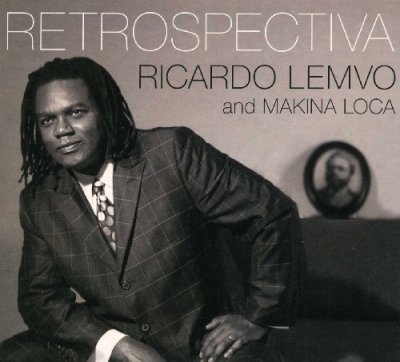 …
…
Ricardo Lemvo is one of two outliers on tonight’s episode since his repertoire isn’t soukous but rather Afro-Cuban music. The same can definitely be said of the next musician, Papa Wemba, whose passing just last month was a huge blow to not only the Congolese music scene but the African music scene in general. His early music was soukous-oriented but it evolved to include other styles, particularly pop. Next up is a Latin-style song with a French title, “Référence” (“respect”), by Papa Wemba and his band, Viva La Musica (Spanish for “long live music”), with Sam Mangwana adding to vocals.
…
And now we’ll switch from the Latin Caribbean to the French Caribbean—the country of Haiti. The Haitian popular music scene is dominated by konpa, which is accompanied by a two-step partner dance that is mellower than meringue, the iconic dance of the neighboring Dominican Republic. Probably due to its French and Creole lyrics, konpa has been popular in Francophone Africa, and likewise, Congolese music has found its way into konpa, such that I was surprised to hear the Haitian group Tabou Combo sampling some of Pepe Kalle’s Lingala.
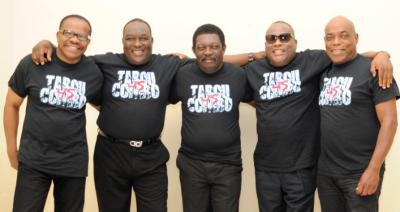
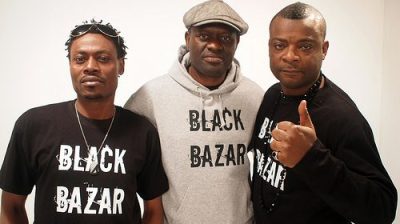
The title of tonight’s episode is “Congo Combo,” but it isn’t the Haitian band that inspired it but rather the next song of the same title. It’s performed by the Paris-based Congolese group Black Bazar, who I had the pleasure of seeing in Paris a few years ago.
…
So far, out of the hundreds of Congolese songs I’ve been exposed to, I’ve come across very little funk. Funk was very influential in West Africa, especially Nigeria and Ghana, which makes sense considering that their Anglophone citizens could understand American English lyrics. But no translation was needed for James Brown’s scream, which you can hear even in Francophone African songs from the 70s.
Much of Congolese funk seems to have been created by Congolese saxophonist and mega-producer, Verckys, who had a chance to meet James Brown during the Zaire 74 music festival intended to accompany the historic Ali–Foreman fight in Kinshasa. I was pretty amazed when I stumbled across this next song, “Bassala Hot,” by one of Vercky’s many groups, Orchestre Vévé Star.
…
For more tidbits about the other songs in this episode, listen here online.
Episode 14 Tracks:
Lagos Night/Sweet Mother/Christiana/Aki Special/Stella/Adwoa/Wellenga/Oh Dea – Lokassa Ya Mbongo & Soukous Stars
Mambo Yo Yo – Ricardo Lemvo & Makina Loka
Référence – Papa Wemba & Viva La Musica feat. Sam Mangwana
Congo Combo – Black Bazar
Toyokanaki Boye Te – Nouvelle Géneration de la République Démocratique
Bassala Hot – Orchestre Vévé Star
Yuda – Dackin Dackino
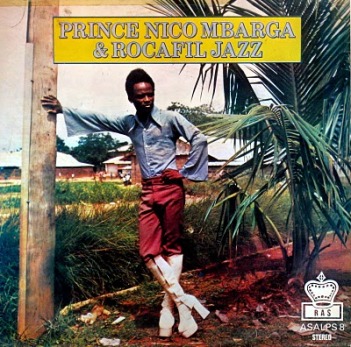
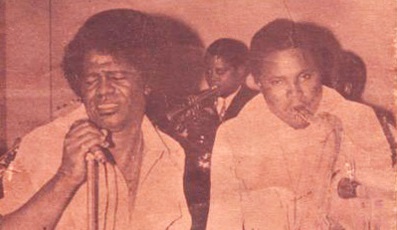
Pingback: Beniko Popolipo, Guitar Legend | Cavacha Express! Classic congolese hits